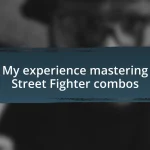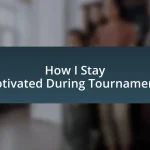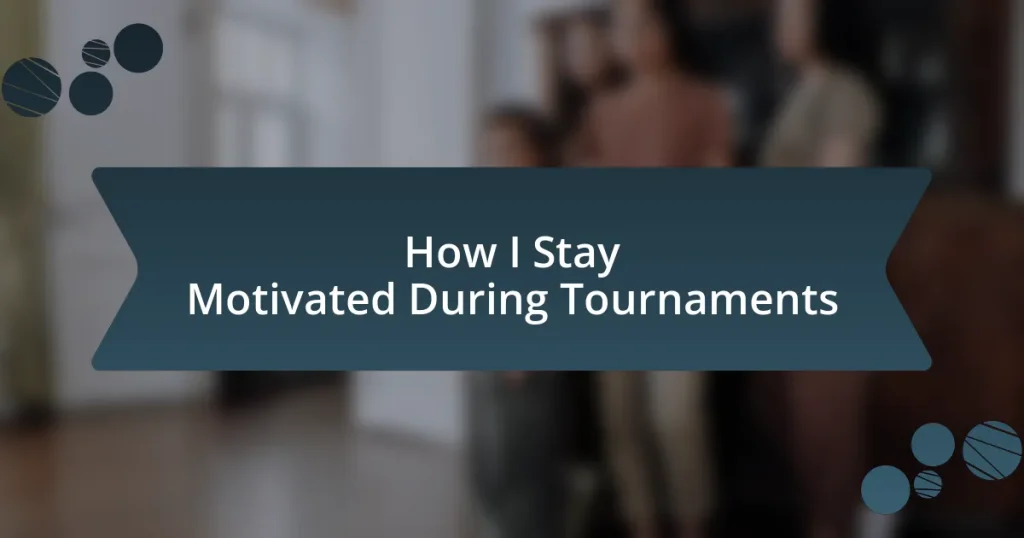Key takeaways:
- Understanding tournament motivation involves reflecting on personal goals and embracing camaraderie with competitors to enhance performance.
- Building a positive mindset through visualization, gratitude, and supportive relationships helps reduce anxiety and maintain motivation.
- Setting realistic goals by breaking them into achievable milestones encourages resilience and joy in the competitive journey.
- Using techniques like deep breathing, reframing thoughts, and discussing feelings with teammates can effectively manage stress and pressure during tournaments.
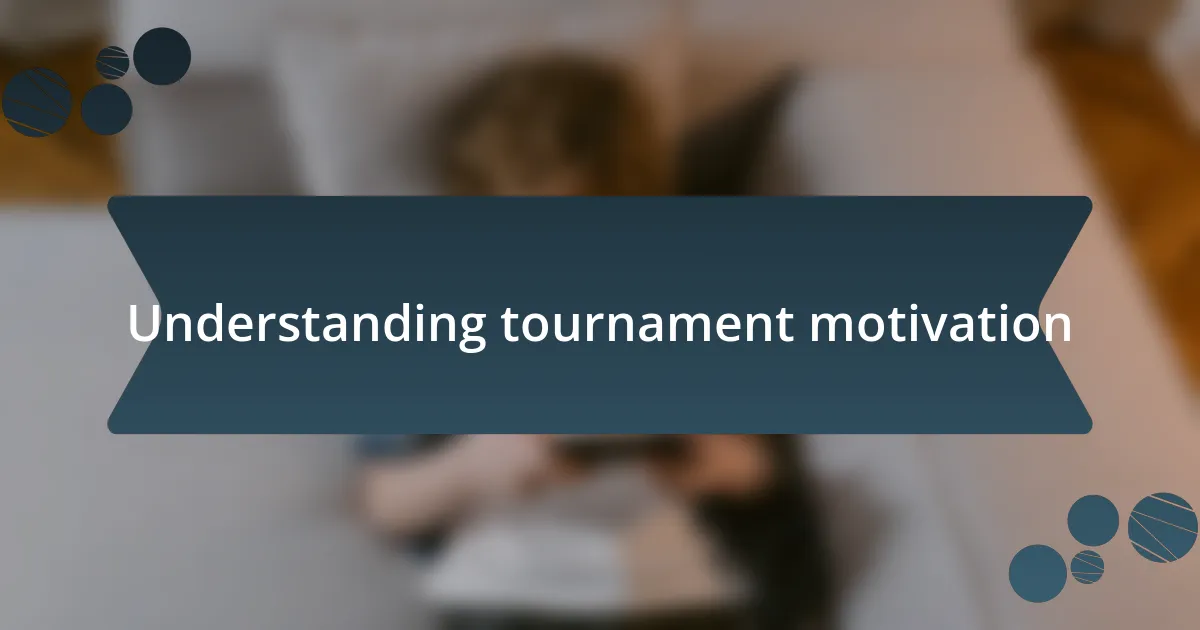
Understanding tournament motivation
Understanding what drives us during tournaments is essential. For me, the thrill of competition sparks a fire within that pushes me to excel, but it’s not just about winning. Have you ever felt both nervous and excited at the same time? That’s the adrenaline talking, reminding me of my commitment to improve with every match.
In the midst of a tournament, I often find myself reflecting on my goals and the reasons why I started playing in the first place. I remember at my last competition, standing on the edge of the court, I thought about all those early morning practices. That moment of clarity fueled my energy, transforming anxiety into determination. What motivates you when the pressure is on?
Furthermore, the camaraderie I share with fellow competitors can amplify that motivation. I distinctively remember sharing a laugh with an opponent before a big match, which lightened the atmosphere and allowed us both to embrace the competition with a sense of joy. Isn’t it fascinating how connection can enhance our drive, turning a sole pursuit into a shared journey?
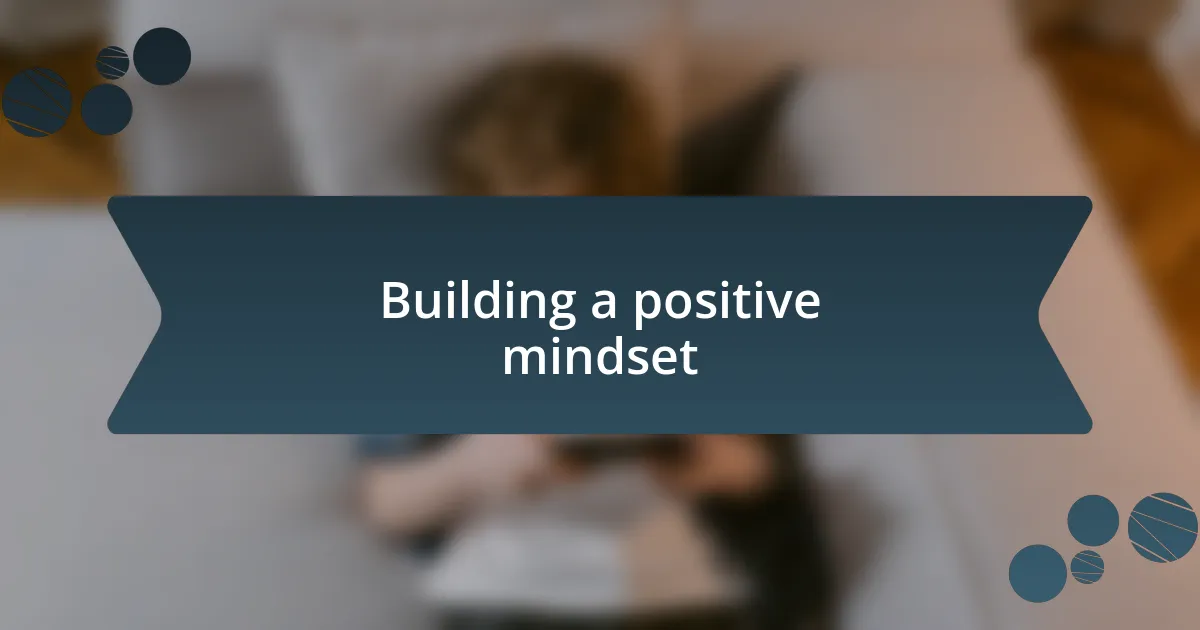
Building a positive mindset
Building a positive mindset involves cultivating an attitude that allows you to thrive under pressure. I remember a tournament where I faced a tough opponent. Instead of letting nerves take over, I visualized my success and focused on the joy of playing. This shift in perspective transformed my mindset, helping me channel positive energy when it mattered most.
Another effective strategy I’ve found is practicing gratitude. Each time I step on the court, I remind myself of the opportunity to compete and improve. Reflecting on my progress and the support from my team can genuinely uplift my mood, leading me to play better. It’s like giving myself permission to enjoy the experience, regardless of the outcome.
Lastly, surrounding myself with positive influences makes a significant difference. I always choose to discuss my goals or challenges with friends who encourage and remind me of my potential. Their belief in my abilities not only boosts my confidence but also reinforces my self-belief, helping to maintain a strong, positive mindset throughout the tournament.
| Positive Mindset Strategies | Personal Insights |
|---|---|
| Visualization | Helps me focus on my goals and reduces anxiety. |
| Gratitude | Encourages a sense of joy and appreciation for the game. |
| Supportive Relationships | Boosts my confidence and belief in myself. |
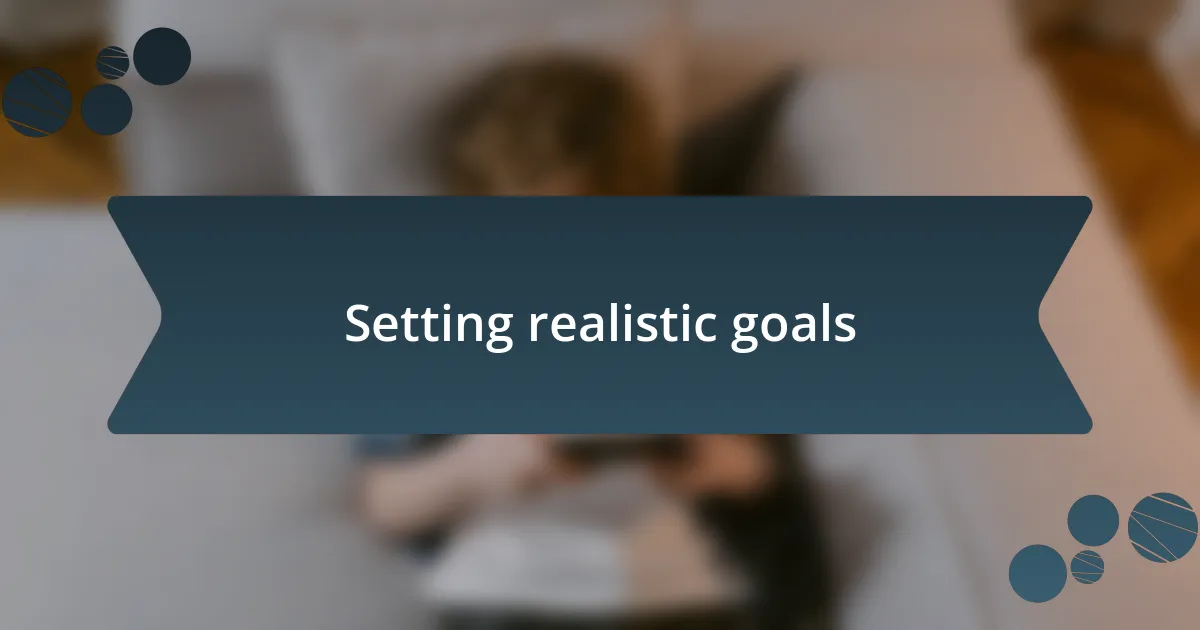
Setting realistic goals
Setting realistic goals is a crucial aspect of maintaining motivation during tournaments. I vividly remember a time when I set my sights too high, wanting to win every match. While ambition is essential, I soon learned the importance of breaking down my objectives into achievable milestones. This approach not only helped me stay focused but also made each small victory feel significant.
Here are some strategies that worked for me when setting realistic goals:
- Define Specific Outcomes: Instead of aiming for a grand win, I’ll focus on improving my serve or maintaining energy levels throughout the match.
- Set Incremental Targets: I like to break down my goals into smaller tasks, like practicing for 30 minutes each day or successfully executing a specific play in practice.
- Be Flexible: I remind myself to adapt my goals based on my performance and mental state during the tournament; sometimes, it’s about making it through each round rather than just winning.
- Celebrate Progress: Each time I achieve a mini-goal, like a successful set routine, I take a moment to appreciate that success, which keeps my spirits up for the next challenge.
By practicing this approach, I’ve not only become more resilient but have also found joy in the journey, which is what truly keeps me motivated.
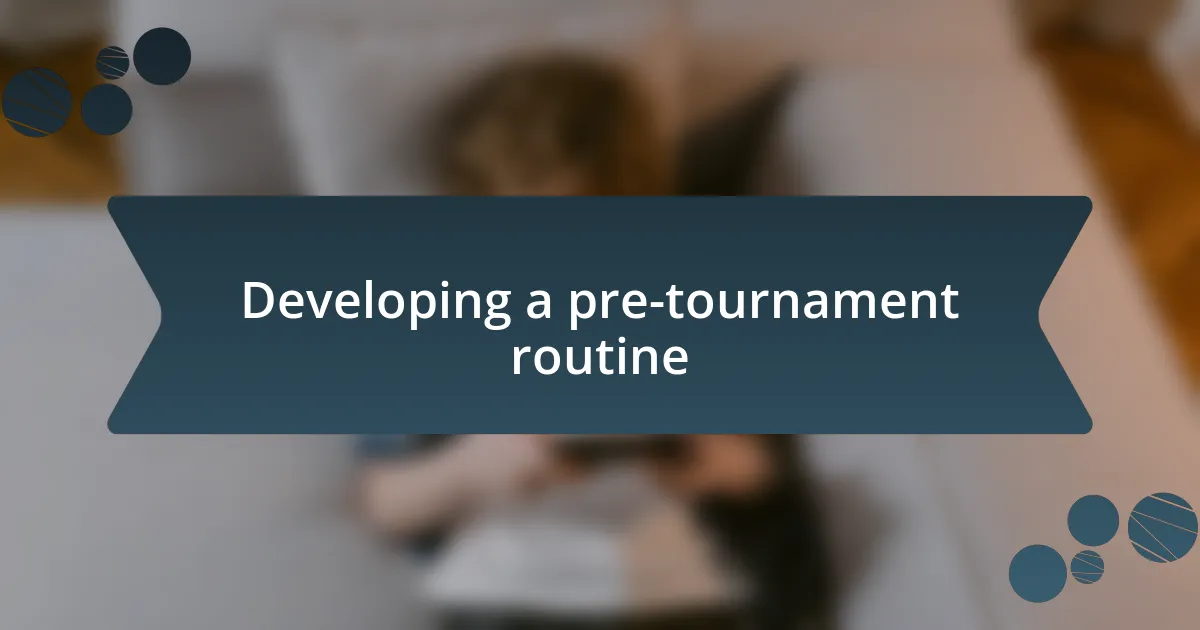
Developing a pre-tournament routine
Developing a pre-tournament routine has been a game-changer for me. I remember a time when I approached tournaments without a plan, feeling anxious and unprepared. But once I established a routine—like waking up at the same time, having a solid breakfast, and warming up my body—I noticed a significant shift in my mindset. This simple structure helped me feel more in control, which alleviated my pre-tournament jitters.
I often find that the little rituals I create make a huge difference. For instance, I always dedicate a few moments to visualization. I close my eyes and imagine myself playing at my best, executing my strategies flawlessly, and overcoming challenges. This practice grounds me and builds confidence, transforming nervous energy into excitement. What about you—have you tried visualization before a big event?
Another important aspect of my pre-tournament routine is taking time for reflection. I look back on past performances and identify both strengths and weaknesses. This not only serves as a reminder of how far I’ve come but also gives me clarity on what to focus on during the tournament. By embracing this reflective practice, I cultivate a strong sense of purpose, which keeps me motivated long after the games end.
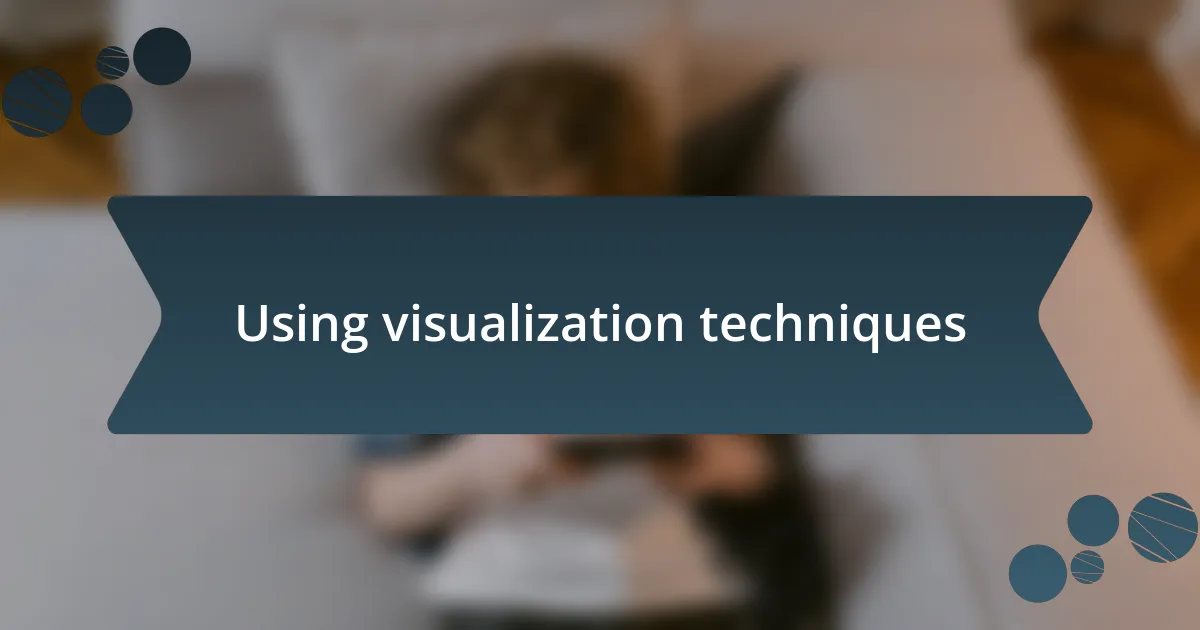
Using visualization techniques
Visualization techniques have been a cornerstone of my mental preparation for tournaments. I remember a pivotal match where anxiety almost overwhelmed me. In those last moments before stepping onto the field, I closed my eyes, took a deep breath, and visualized every play—a perfect pass, a well-timed move. This mental rehearsal not only calmed my nerves but also set a clear path for my performance. Have you ever imagined your success before a big moment?
I’ve found that engaging all my senses during visualization makes it even more powerful. Picture this: I’m not just visualizing the play; I can hear the crowd’s cheers and feel the rush of adrenaline. This immersive experience helps me internalize my goals, as if I’ve already lived through those triumphant moments. It’s fascinating how our minds can trick us into feeling that victory, isn’t it?
One unique technique I use is creating a vision board. I’ve collected images and phrases that resonate with my goals and dreams. Whenever I feel doubt creeping in, I glance at it for a quick boost. It’s a reminder of what I’m capable of achieving, fueling my motivation during the tournament. Visualizing my aspirations helps align my thoughts and actions, keeping me focused and driven. Do you believe that visual cues can influence your mindset as they do mine?
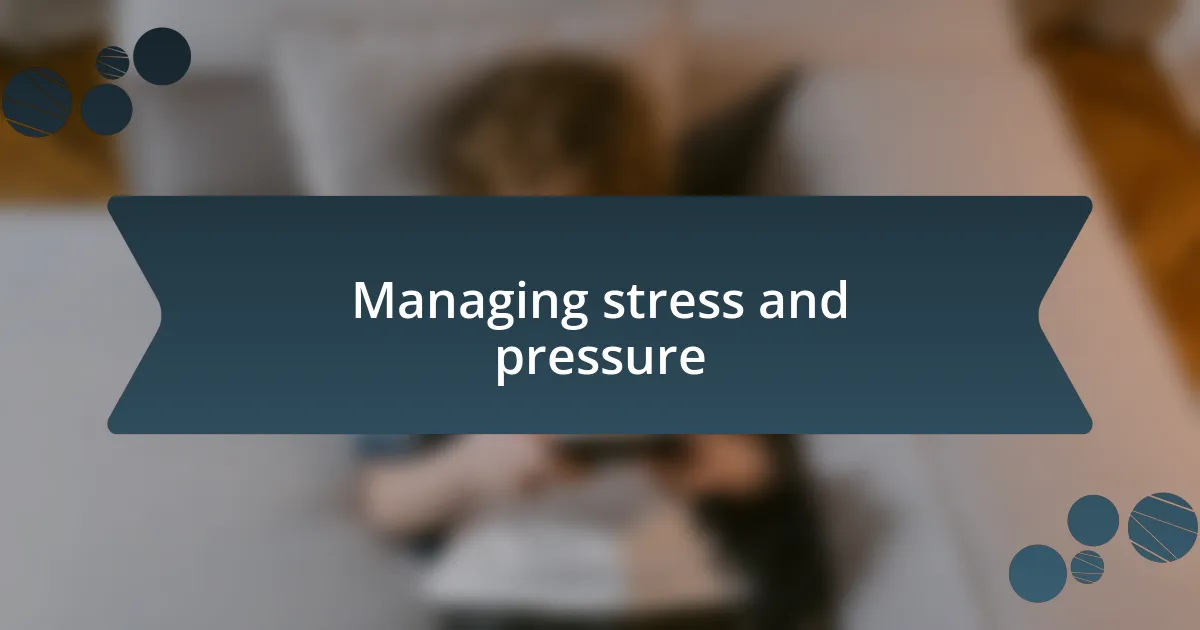
Managing stress and pressure
Managing stress and pressure is something I take seriously during tournaments. There was a time when the weight of expectations felt crushing, leading to mistakes I wouldn’t typically make. To counteract this, I began implementing a routine of deep breathing exercises between rounds. It amazes me how just a few mindful breaths can ground me and shift my focus back to the here and now. Do you ever notice how your body responds when you’re stressed?
One strategy I’ve embraced is the power of reframing my thoughts. Instead of viewing the tournament as a high-stakes performance, I try to see it as an opportunity to learn and grow. I recall a tournament where I initially viewed failure as devastating, but shifting my mindset transformed those moments into valuable lessons. Doesn’t experiencing growth from adversity makes the journey richer?
Additionally, I find that discussing my feelings with teammates can significantly alleviate pressure. In the heat of competition, I often share my concerns and receive support and encouragement from those who truly understand what I’m going through. There’s something incredibly relieving about knowing that others feel the same way, and it creates a sense of camaraderie that helps us all perform better. Have you experienced that unity with your peers during challenging moments?
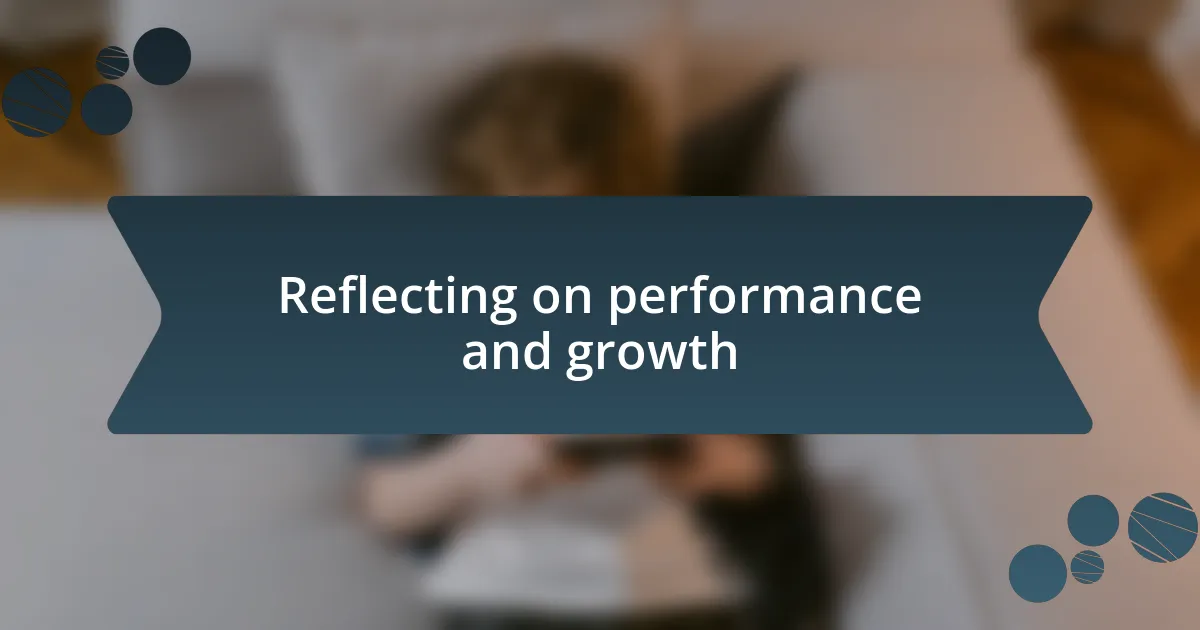
Reflecting on performance and growth
Reflecting on my performance after each tournament is a vital part of my growth. I remember finishing a particularly challenging event and feeling a swirl of emotions—frustration and disappointment, but also an urge to understand what I could have done differently. These reflections have taught me that every experience, good or bad, is a building block for improvement. So, how often do you take the time to truly analyze your own performances?
I also keep a journal where I note down specific moments that stood out during the tournament. One time, I wrote about a crucial match where I faltered under pressure, but as I dissected it later, I realized it was the tactical adjustments I made mid-game that brought valuable insights. That blend of vulnerability and honesty with myself helps me to plot a clear path forward. Do you have a similar method for capturing your thoughts and feelings after an event?
Moreover, I found that discussing my reflections with a mentor has been transformative. Once, after a particularly disappointing tournament, my mentor shared how he had faced similar struggles early in his career. His perspective helped me see setbacks not as failures, but as necessary detours on the road to growth. Have you ever had someone guide you through your pitfalls, illuminating a path you hadn’t considered before?

